Navigating the Caribbean: A Comprehensive Guide to Time Zones
Related Articles: Navigating the Caribbean: A Comprehensive Guide to Time Zones
Introduction
In this auspicious occasion, we are delighted to delve into the intriguing topic related to Navigating the Caribbean: A Comprehensive Guide to Time Zones. Let’s weave interesting information and offer fresh perspectives to the readers.
Table of Content
Navigating the Caribbean: A Comprehensive Guide to Time Zones

The Caribbean, a vibrant tapestry of islands and diverse cultures, is also home to a fascinating patchwork of time zones. Understanding this intricate system is essential for travelers, businesses, and anyone seeking to interact with the region. This guide provides a comprehensive overview of Caribbean time zones, highlighting their importance, intricacies, and practical implications.
A Mosaic of Time: The Caribbean Time Zone Landscape
The Caribbean is not governed by a single time zone, but rather a constellation of distinct time zones, reflecting the region’s geographical spread and historical connections. This diverse time zone landscape can initially seem confusing, but with a clear understanding of the underlying factors, it becomes readily comprehensible.
Factors Shaping Caribbean Time Zones
-
Longitude: As the Earth rotates, different regions experience sunrise and sunset at varying times. Longitude, the angular distance east or west of the prime meridian, plays a crucial role in determining time zones. The further east a location is, the earlier it experiences sunrise and sunset. This principle is reflected in the Caribbean, with islands further east generally observing earlier time zones.
-
Historical Ties: Colonial influence also shaped the time zones of Caribbean nations. Many islands adopted the time zones of their former colonial powers, contributing to the current mosaic of time zones.
-
Practical Considerations: Economic and logistical factors have also influenced time zone adjustments. Some islands, particularly those with close economic ties to North America, have adopted time zones that facilitate smoother business interactions and communication.
Exploring the Caribbean Time Zone Map
The Caribbean time zone map reveals a fascinating interplay of these factors. The region is primarily divided into four main time zones:
-
Atlantic Standard Time (AST): This time zone, four hours behind Coordinated Universal Time (UTC), is observed by several islands in the eastern Caribbean, including Puerto Rico, the U.S. Virgin Islands, and the British Virgin Islands.
-
Eastern Standard Time (EST): Five hours behind UTC, EST is prevalent in the central Caribbean, including the Bahamas, Turks and Caicos Islands, and the Dominican Republic.
-
Central Standard Time (CST): Six hours behind UTC, CST is observed in some of the western Caribbean islands, such as Grand Cayman and Belize.
-
Pacific Standard Time (PST): Seven hours behind UTC, PST is observed only in the westernmost island of the Caribbean, the island of Clipperton, which is a French territory.
Beyond the Main Time Zones
While these four time zones dominate the Caribbean, some islands observe variations within them. For example, Jamaica and Cuba observe their own unique time zones, offset from EST by a half-hour and 30 minutes, respectively. These variations further illustrate the dynamic and evolving nature of Caribbean time zones.
The Importance of Understanding Caribbean Time Zones
Understanding the intricacies of Caribbean time zones is crucial for a multitude of reasons:
-
Travel Planning: Travelers need to be aware of the time difference between their home country and their Caribbean destination to adjust their schedules, plan flights, and avoid missed connections.
-
Business Communications: Effective business communication requires considering time zone differences to schedule meetings, phone calls, and email exchanges at convenient times for all parties involved.
-
International Collaboration: Research institutions, NGOs, and other organizations collaborating with Caribbean counterparts need to be mindful of time zone differences to facilitate seamless coordination and communication.
-
Cultural Understanding: Being aware of the time zones observed by different Caribbean islands fosters a deeper understanding of the region’s diverse cultural landscapes.
Navigating the Time Zone Labyrinth: Practical Tips
-
Consult Online Resources: Websites like TimeandDate.com and WorldTimeBuddy.com offer comprehensive time zone information for all Caribbean islands.
-
Check Your Airline’s Website: Airlines typically provide time zone details for their destinations, ensuring travelers are informed about the local time.
-
Utilize Time Zone Conversion Apps: Mobile apps like World Clock and Time Zone Converter allow users to easily convert times between different zones.
-
Ask Locals: When in doubt, ask local residents for confirmation about the current time.
Frequently Asked Questions
Q: Why are there so many time zones in the Caribbean?
A: The Caribbean’s diverse time zone landscape is a result of a combination of geographical, historical, and practical factors, including longitude, colonial influence, and economic considerations.
Q: How do I know what time zone a specific Caribbean island observes?
A: Reliable online resources, travel websites, and time zone conversion apps provide accurate time zone information for all Caribbean islands.
Q: What is the best way to avoid confusion with time zones while traveling in the Caribbean?
A: Consult online resources, check airline websites, use time zone conversion apps, and ask local residents for confirmation about the current time.
Conclusion
The Caribbean’s time zone landscape is a fascinating reflection of the region’s complex history, geography, and cultural diversity. Understanding this intricate system is essential for travelers, businesses, and anyone seeking to engage with the Caribbean. By utilizing online resources, consulting travel guides, and being mindful of time zone differences, individuals can navigate this unique aspect of the Caribbean with ease and confidence.
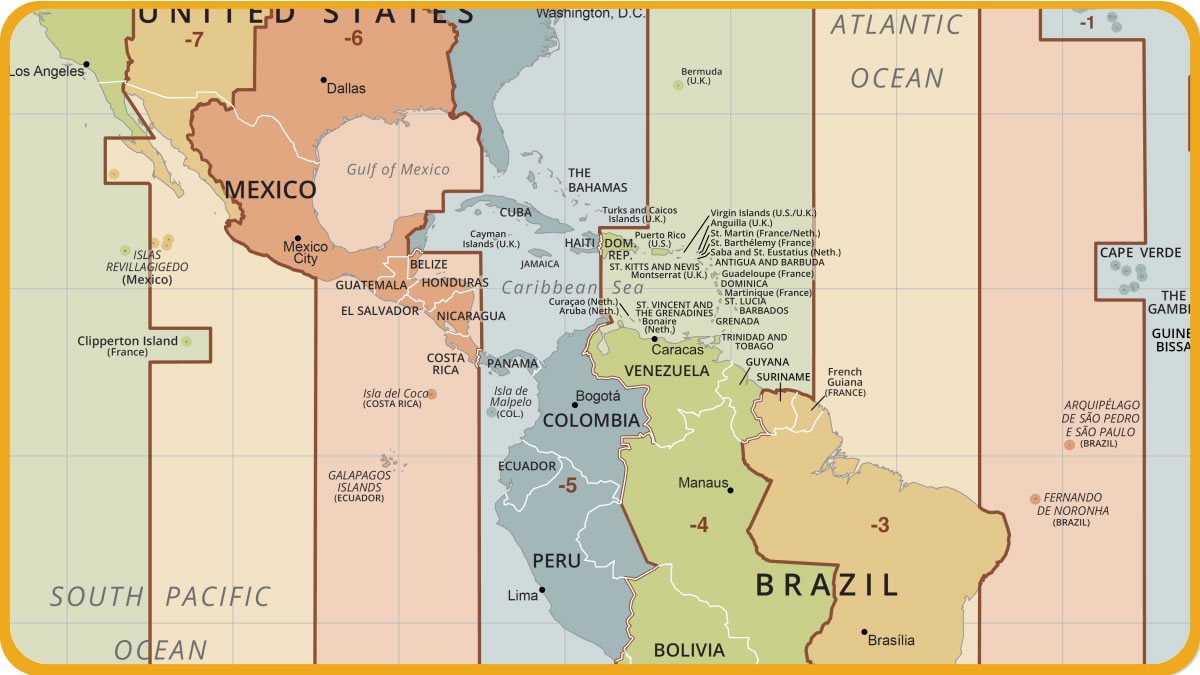
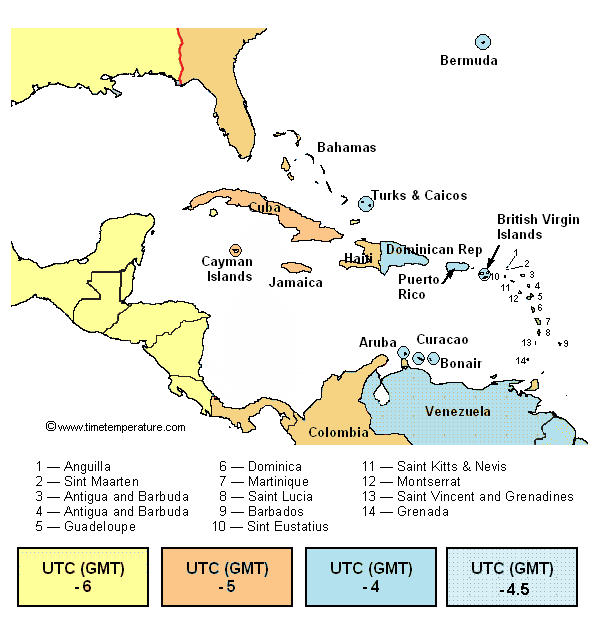
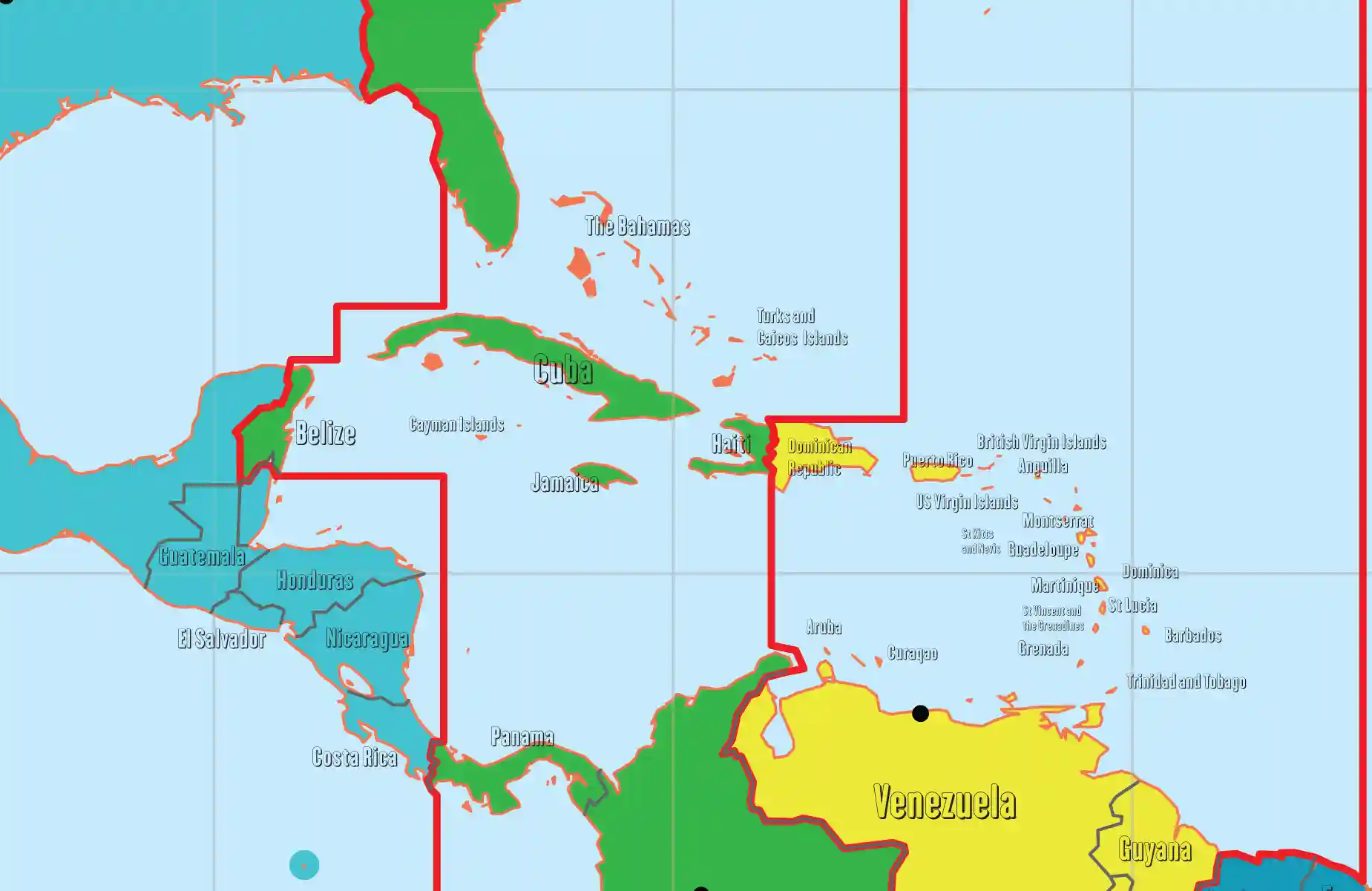
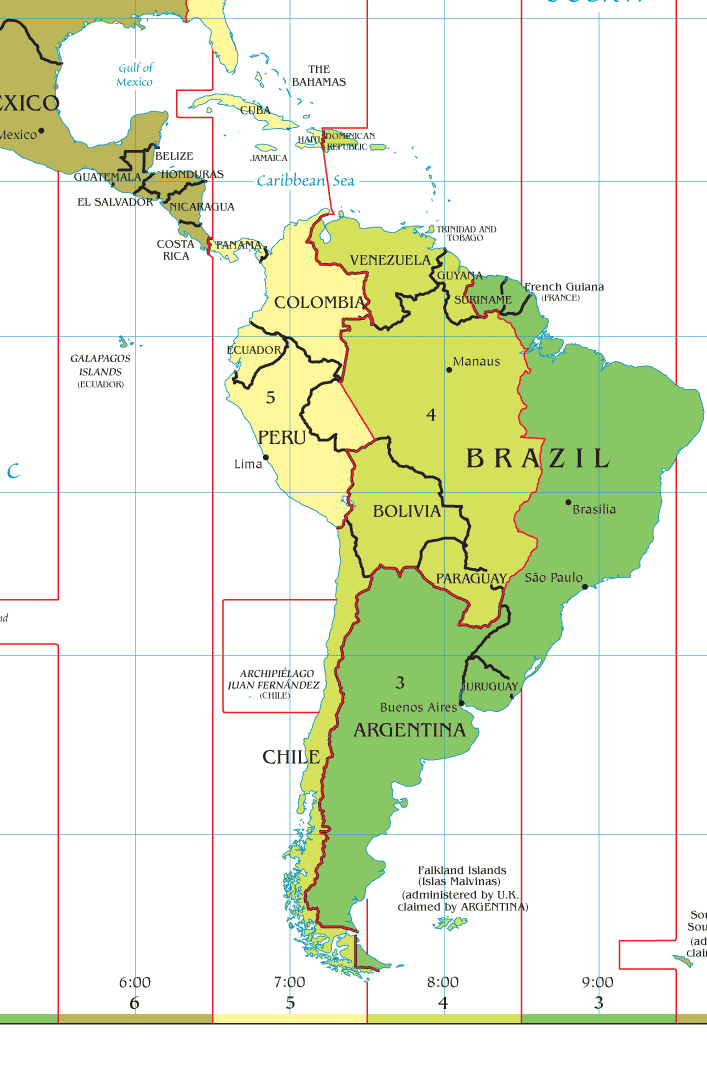
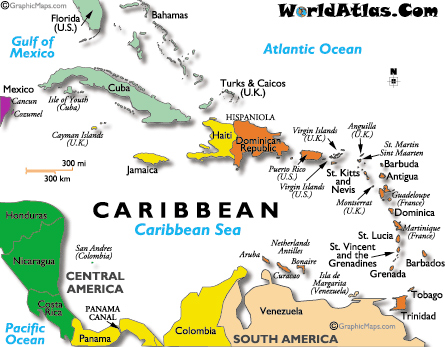
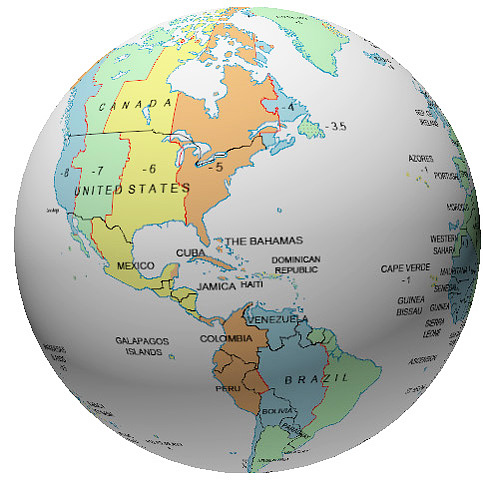


Closure
Thus, we hope this article has provided valuable insights into Navigating the Caribbean: A Comprehensive Guide to Time Zones. We hope you find this article informative and beneficial. See you in our next article!